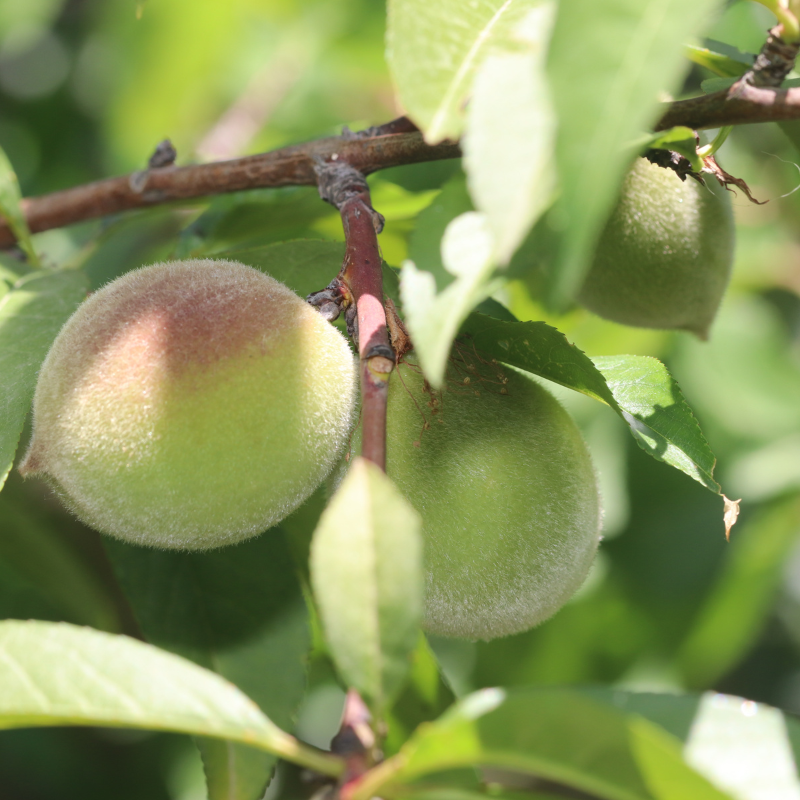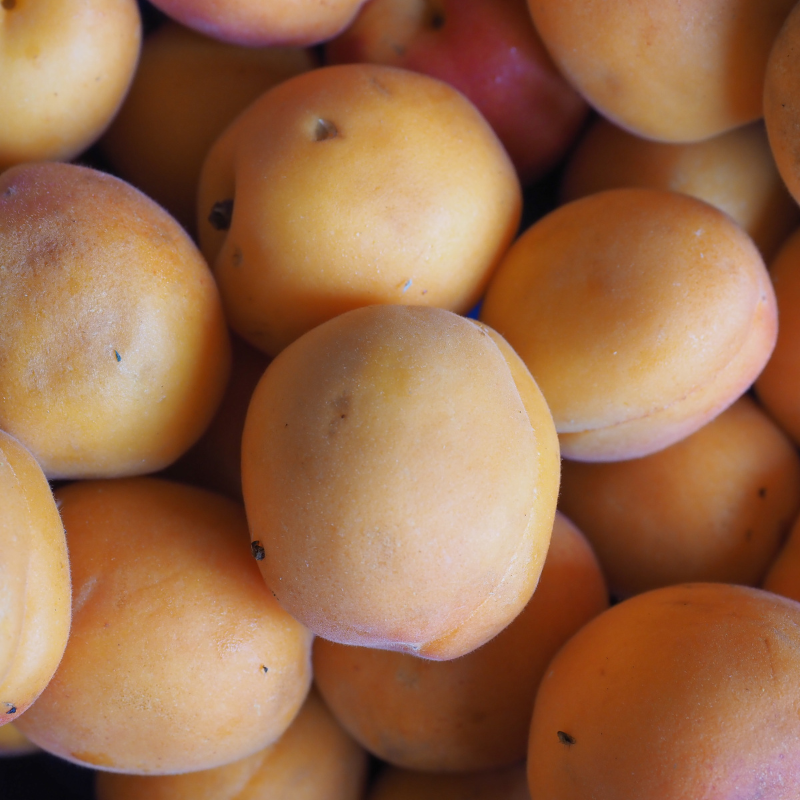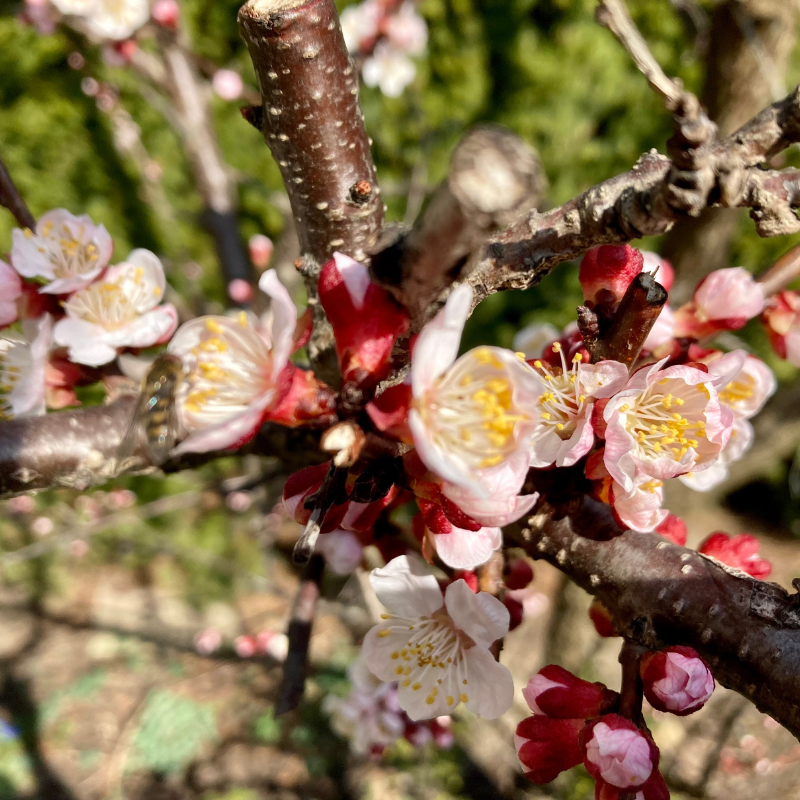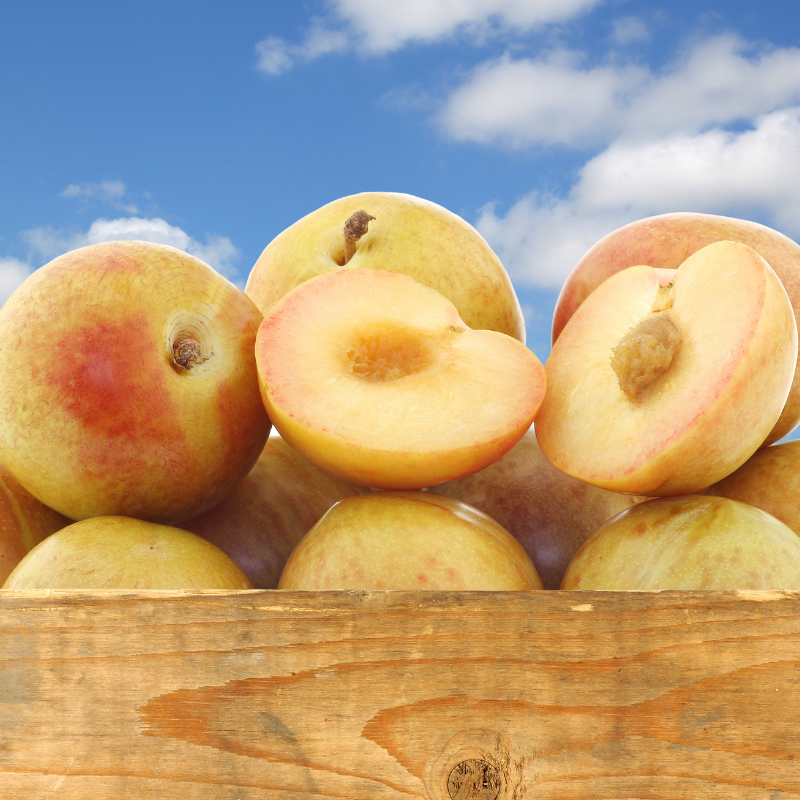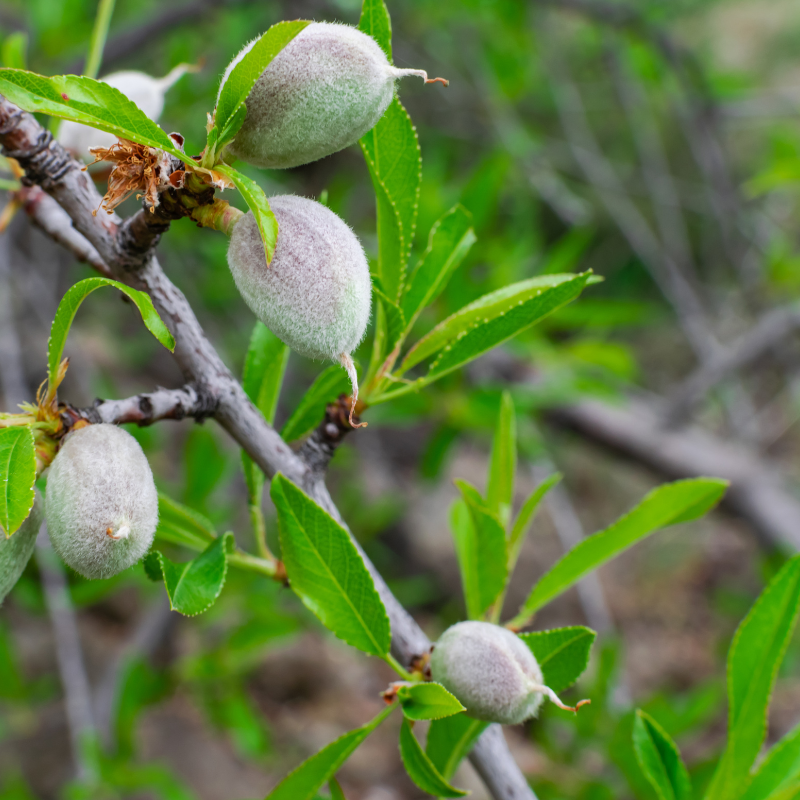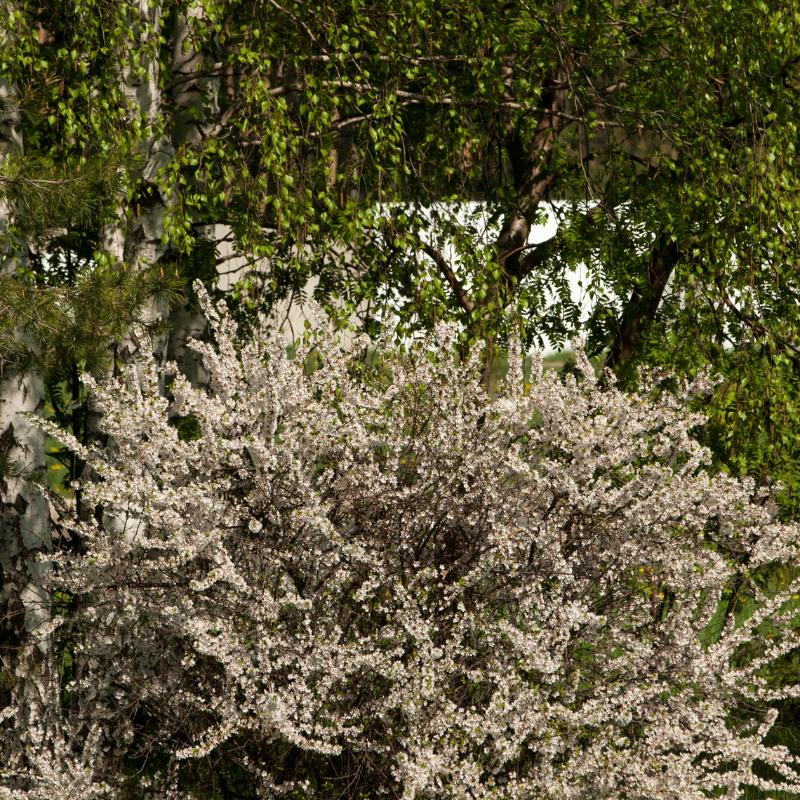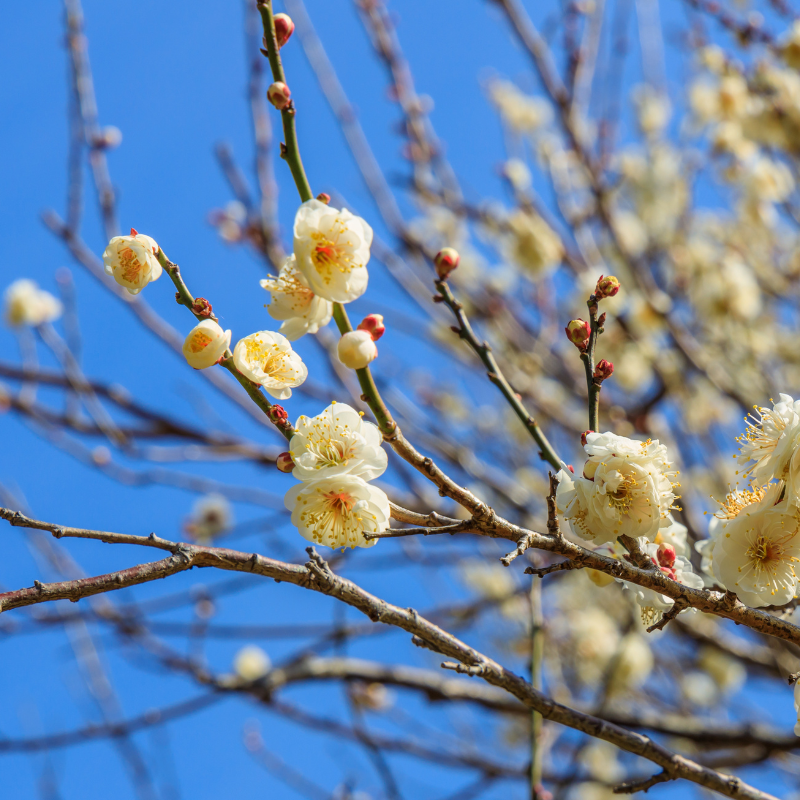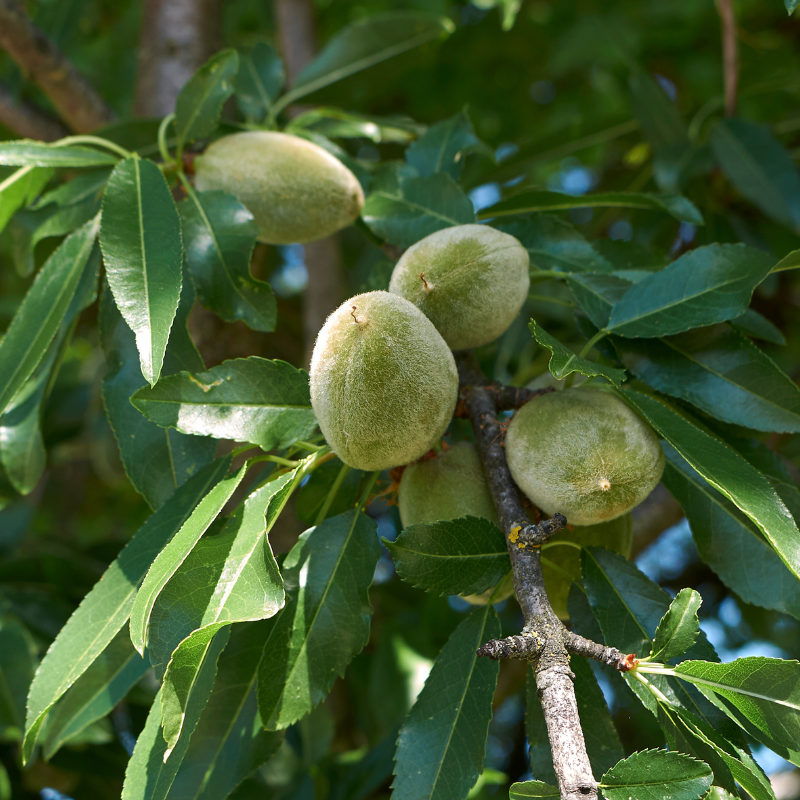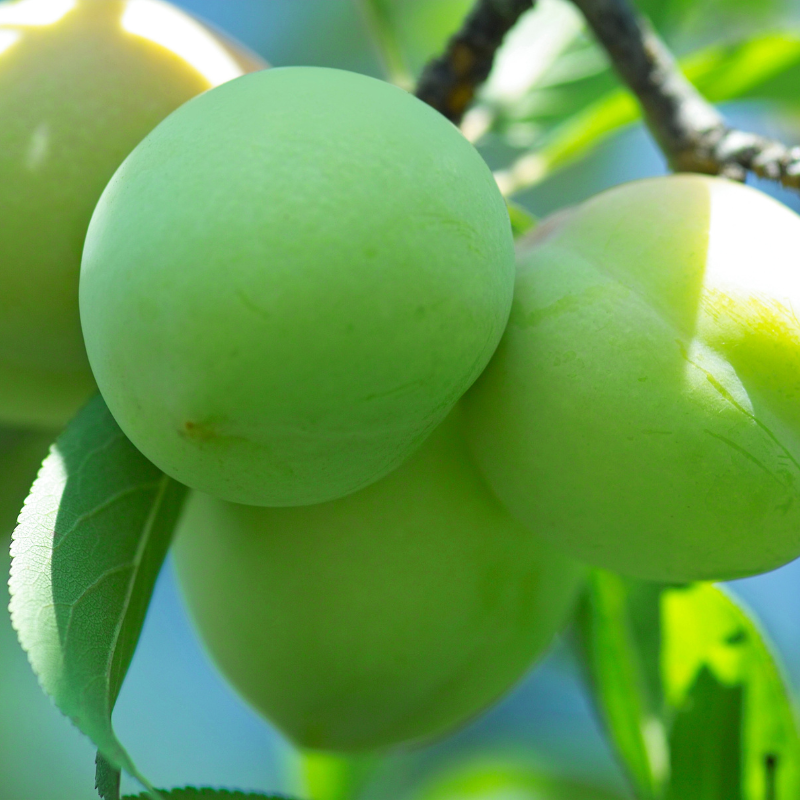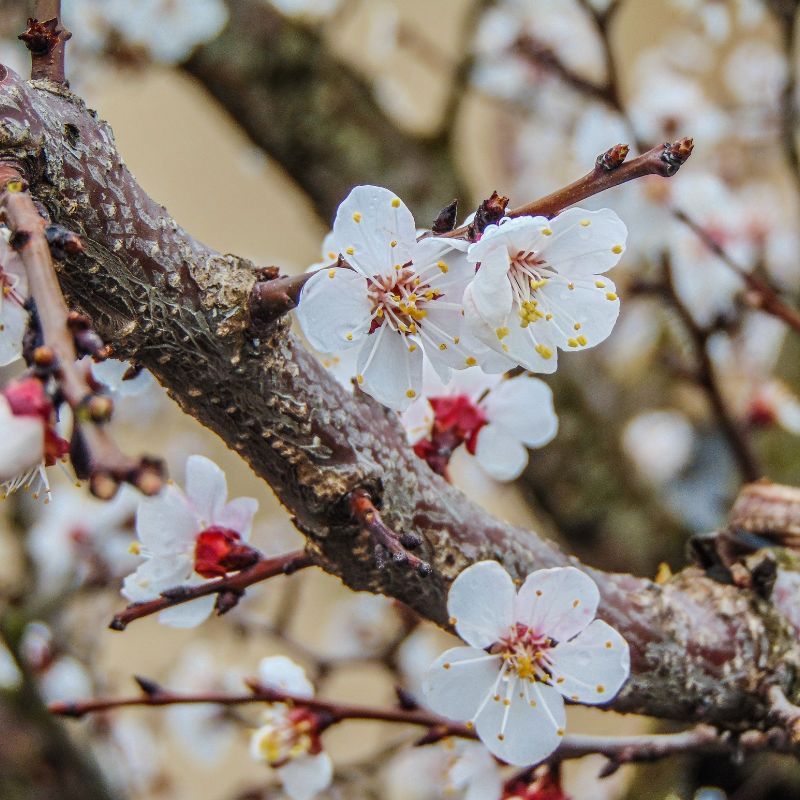White Himalayan Apricot Seeds (Prunus armeniaca)
Description:
The White Himalayan Apricot (Prunus armeniaca) is a rare and exquisite variety of apricot native to the high-altitude regions of the Himalayas. Known for its pale, creamy skin and intensely sweet flavor, this apricot is a prized addition to orchards and gardens. Revered for its adaptability, this hardy fruit tree thrives in cooler climates and produces high yields of nutritious, aromatic fruits.
Key Features:
• Tree Characteristics:
• Medium-sized deciduous tree, growing 5–8 meters in height with a spreading, rounded canopy.
• Features broad, ovate green leaves that turn golden in autumn, adding seasonal interest.
• Produces delicate white or pale pink blossoms in early spring, attracting pollinators.
• Fruit Features:
• Small to medium-sized fruits with smooth, creamy white skin.
• The flesh is juicy, sweet, and aromatic, with a soft texture ideal for fresh consumption or drying.
• Ripens in mid to late summer, depending on altitude and climate.
• Hardiness:
• Thrives in temperate and high-altitude climates, tolerating cold winters and dry conditions.
• Highly adaptable to rocky or less fertile soils.
Cultivation Instructions:
• Climate Requirements:
• Prefers cool winters and warm, sunny summers for optimal growth and fruiting.
• Requires full sun exposure and protection from strong winds.
• Soil Preference:
• Grows best in well-drained loamy or sandy soils with a pH range of 6.0–7.5.
• Tolerates rocky, less fertile soils but benefits from organic amendments for improved yields.
• Planting Instructions:
• Stratify seeds by placing them in moist sand or peat and refrigerating at 4°C for 8–12 weeks before planting.
• Sow seeds in spring, 2–3 cm deep in nutrient-rich soil, ensuring proper spacing (4–6 meters apart).
• Protect young saplings from frost and pests during the early growth stages.
• Watering:
• Regular watering is necessary during the establishment phase and fruiting season.
• Mature trees are drought-tolerant but benefit from occasional deep watering in dry conditions.
• Pruning:
• Prune annually in late winter to shape the tree, remove dead or weak branches, and promote airflow.
Uses and Benefits:
• Culinary:
• The sweet fruits are enjoyed fresh, dried, or used in jams, chutneys, and traditional recipes.
• Perfect for baking and desserts due to their rich flavor and soft texture.
• Gardening:
• Adds ornamental value with its beautiful blossoms and unique pale fruits.
• Suitable for home orchards and agroforestry projects.
• Nutritional Value:
• High in vitamins A and C, potassium, and antioxidants, promoting overall health and vitality.
• Medicinal Uses:
• Traditionally used in herbal remedies for its antioxidant properties and as a source of natural oils.
Historical Note:
The White Himalayan Apricot has been cultivated for centuries in the Himalayan region, where it is celebrated for its superior flavor and resilience in harsh conditions. Its fruits are an integral part of local diets and are often sun-dried for long-term use.
Shipping Information:
Deodar Seeds ensures that all seeds are carefully selected and packaged to maintain their freshness and viability. Seeds are shipped within India and internationally, with delivery typically within 1–2 weeks.
From Deodar Seeds Company.
Description:
The White Himalayan Apricot (Prunus armeniaca) is a rare and exquisite variety of apricot native to the high-altitude regions of the Himalayas. Known for its pale, creamy skin and intensely sweet flavor, this apricot is a prized addition to orchards and gardens. Revered for its adaptability, this hardy fruit tree thrives in cooler climates and produces high yields of nutritious, aromatic fruits.
Key Features:
• Tree Characteristics:
• Medium-sized deciduous tree, growing 5–8 meters in height with a spreading, rounded canopy.
• Features broad, ovate green leaves that turn golden in autumn, adding seasonal interest.
• Produces delicate white or pale pink blossoms in early spring, attracting pollinators.
• Fruit Features:
• Small to medium-sized fruits with smooth, creamy white skin.
• The flesh is juicy, sweet, and aromatic, with a soft texture ideal for fresh consumption or drying.
• Ripens in mid to late summer, depending on altitude and climate.
• Hardiness:
• Thrives in temperate and high-altitude climates, tolerating cold winters and dry conditions.
• Highly adaptable to rocky or less fertile soils.
Cultivation Instructions:
• Climate Requirements:
• Prefers cool winters and warm, sunny summers for optimal growth and fruiting.
• Requires full sun exposure and protection from strong winds.
• Soil Preference:
• Grows best in well-drained loamy or sandy soils with a pH range of 6.0–7.5.
• Tolerates rocky, less fertile soils but benefits from organic amendments for improved yields.
• Planting Instructions:
• Stratify seeds by placing them in moist sand or peat and refrigerating at 4°C for 8–12 weeks before planting.
• Sow seeds in spring, 2–3 cm deep in nutrient-rich soil, ensuring proper spacing (4–6 meters apart).
• Protect young saplings from frost and pests during the early growth stages.
• Watering:
• Regular watering is necessary during the establishment phase and fruiting season.
• Mature trees are drought-tolerant but benefit from occasional deep watering in dry conditions.
• Pruning:
• Prune annually in late winter to shape the tree, remove dead or weak branches, and promote airflow.
Uses and Benefits:
• Culinary:
• The sweet fruits are enjoyed fresh, dried, or used in jams, chutneys, and traditional recipes.
• Perfect for baking and desserts due to their rich flavor and soft texture.
• Gardening:
• Adds ornamental value with its beautiful blossoms and unique pale fruits.
• Suitable for home orchards and agroforestry projects.
• Nutritional Value:
• High in vitamins A and C, potassium, and antioxidants, promoting overall health and vitality.
• Medicinal Uses:
• Traditionally used in herbal remedies for its antioxidant properties and as a source of natural oils.
Historical Note:
The White Himalayan Apricot has been cultivated for centuries in the Himalayan region, where it is celebrated for its superior flavor and resilience in harsh conditions. Its fruits are an integral part of local diets and are often sun-dried for long-term use.
Shipping Information:
Deodar Seeds ensures that all seeds are carefully selected and packaged to maintain their freshness and viability. Seeds are shipped within India and internationally, with delivery typically within 1–2 weeks.
From Deodar Seeds Company.
White Himalayan Apricot, Prunus Armeniaca seeds - 5
- Brand: Deodar Seeds
- Product Code: FR33
- Availability: In Stock
₹342.00

